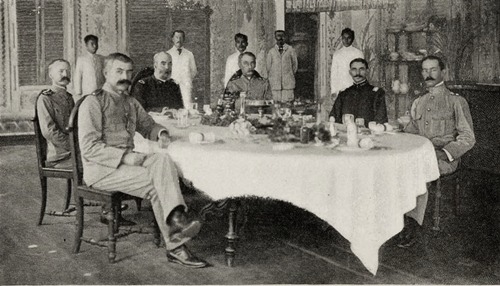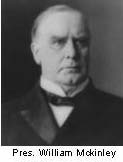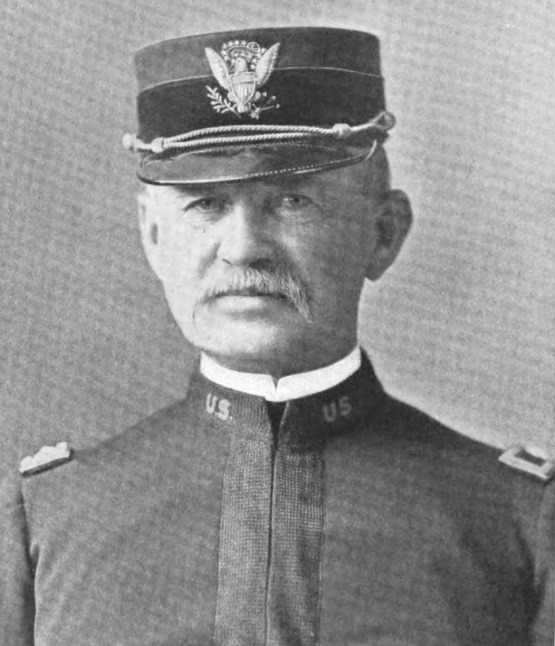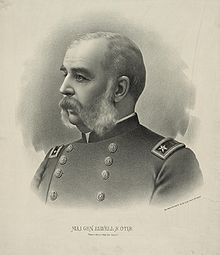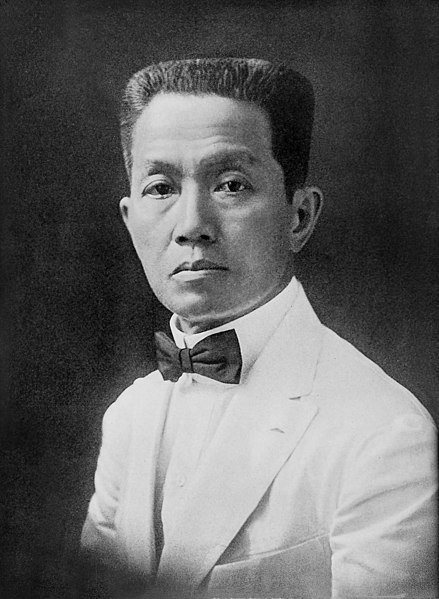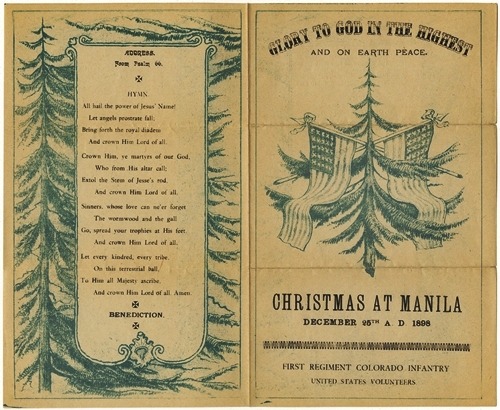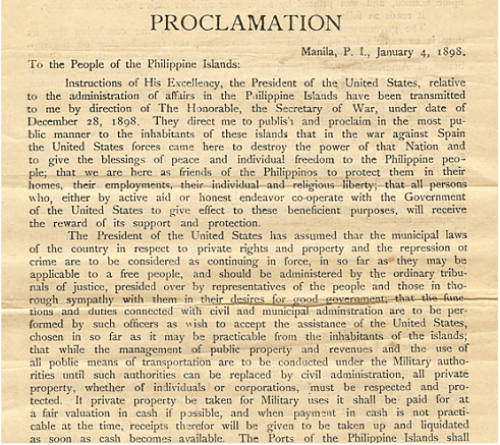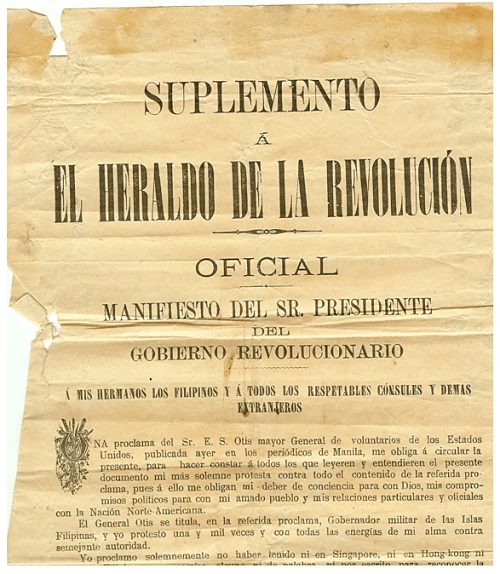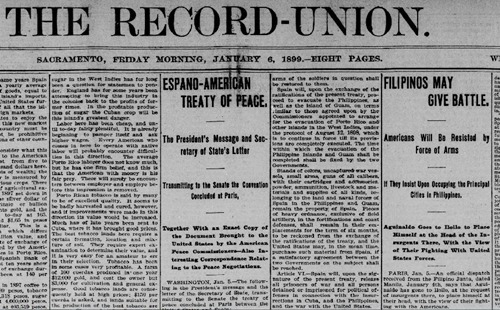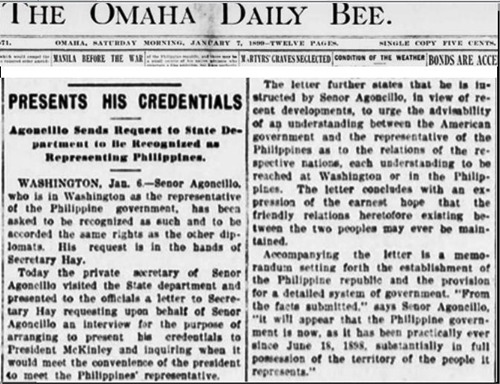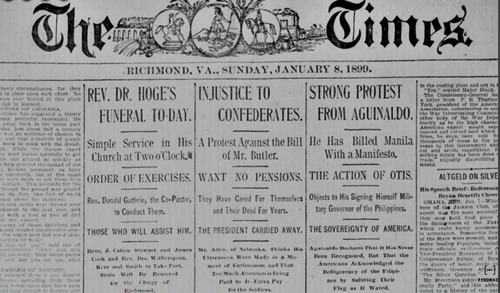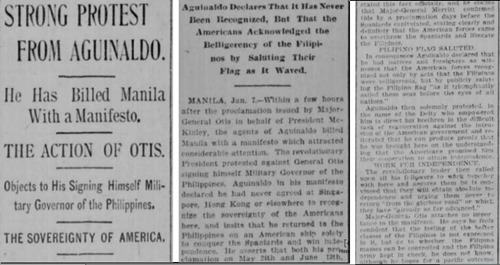Dec. 21, 1898: Mckinley issues “Benevolent Assimilation” Proclamation
The US is ranked among one of the most important global economies of the world. Behind this strong position lies a history of various events and traditions that influenced the US’ power and hold over various territories. One of the most important ones is the Benevolent Assimilation which was a policy measure by the US government to take over the Philippines as their own territory.
What was the Benevolent Assimilation?
Immediately after the Spanish-American War, the United States government announced its plans to take charge of the Philippines under its administration. With the US policy of expansion already being continued, this was just another move to overtake the Philippines. Although it was a straightforward takeover policy, the US government gave it an impression to help out the locals from being oppressed and deprived of basic rights.
However, the US government was unaware that it would be leading towards a mass-scale war between the Philippines and the United States because the political movement in the Philippines was starting to gain power. Moreover, awareness regarding the plans of the US was also spread which began the Philippines Revolution. Prior to the Benevolent Assimilation, Emilio Aguinaldo, a strong political candidate fighting for the rights of the US, announced the independence of the Philippines and decided to start a revolutionary movement against the American army. Ultimately, this became a root cause for the upcoming Filipino American War.
Dec. 21, 1898: Mckinley issues “Benevolent Assimilation” Proclamation
On Dec. 21, 1898, President McKinley issued the BENEVOLENT ASSIMILATION PROCLAMATION, announced in the Philippines on Jan. 4, 1899, which stated the U.S.’ “altruistic” mission in acquiring the Philippines. The U.S. has “come, not as invaders or conquerors, but as friends, to protect the natives in their homes, in their employment, and their personal and religious rights.”
Moreover, the U.S. wanted to “win the confidence, respect, and affection of the inhabitants of the Philippines by assuring them in every possible way that full measure of individual rights and liberties which is the heritage of free peoples, and by proving to them that the mission of the United States is one of benevolent assimilation substituting the mild sway of justice and right for arbitrary rule.”
The Benevolent Assimilation was a measure to hand over the “future control, disposition, and government of The Philippines to the United States along with military government and related assets”. The result of the Benevolent Assimilation was that there was a major resistance by the Filipinos on what the US government planned.
Aftermath of Benevolent Assimilation
Immediately after the Benevolent Assimilation was passed by the President of the United States, McKinley, the active government in the Philippines including American General Elwell Otis, U.S Military Commander, and Governor-General were informed. However, expecting resistance from Filipinos, General Otis decided to pass down the order in an even lighter way. He sent a version of the proclamation to Emilio Aguinaldo by removing after removing all words which could spark controversy, debate, or hurt the emotional sentiments of Filipinos.
All words which focused on the benevolent purpose of the US were removed while the phrase “supremacy of The United States” was replaced with the phrase “free people”. The phrase “to exercise future domination” was removed from the proclamation before it was sent to Emilio Aguinaldo. General Otis further sent an unaltered version to General Marcus Miller in Iloilo city as well.
However, it was one big mistake because the lack of communication between General Marcus and General Otis created a gap between the Filipinos and Americans. This is because when General Marcus received the unaltered version, he was not made aware that Emilio Aguinaldo got the altered version of this proclamation. As a result, when General Marcus shared the proclamation with one of the Filipino officers, the proclamation spread among the Filipinos like wildfire and eventually made its way to Emilio Aguinaldo.
Suggested Reading – Who Was Emilio Aguinaldo?
Another outcome of the Benevolent Assimilation was that 9 days after the proclamation was passed, Emilio Aguinaldo announced the Philippines as an independent state with complete authority and control by the Filipinos. However, the United States government had already announced the Benevolent Assimilation and was not hoping to give up so easily. Therefore, they denied all such measures being taken by the government of the Philippines and refused to recognize the Philippines as an independent state. As a result, Filipinos, particularly Emilio Aguinaldo, were furious and further went on to establish the Philippines as an independent state. By 27th January 1899, Emilio Aguinaldo proclaimed the constitution.
One of the main reasons why the war between Filipinos and Americans started was due to the Benevolent Assimilation. This is because it was one direct attack on the sovereignty of the Filipinos while it indicated the US plans to conquer The Philippines. By 4th February 1899, the Filipinos had directly announced a war against the Americans immediately after it was found out that three Filipino soldiers had been killed by the American army.
Find out more about the events of Filipino American war here – A Brief History of Filipino-American War
Conclusion
The Benevolent Assimilation is considered one of the most important events in the history of the Phillipine-America War. All such measures instigated the Filipinos towards the movement of freedom which is why they continued to protect the Philippines while the US tried to advance their control and dominate the Philippines.
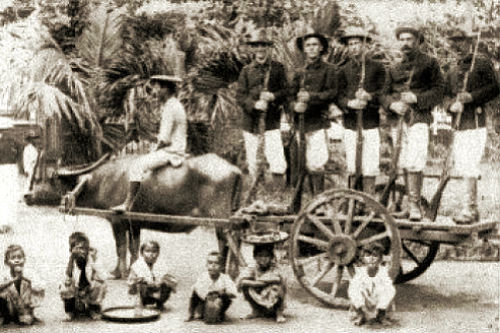
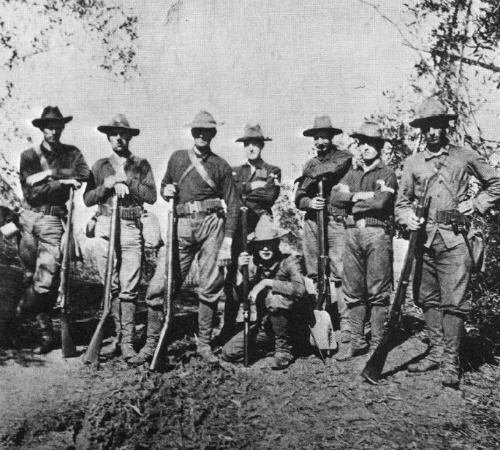
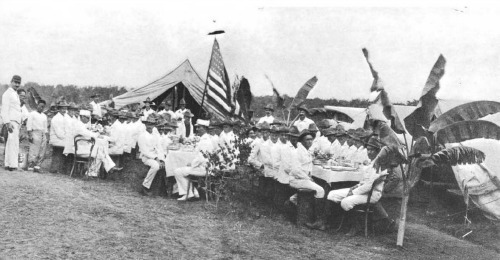
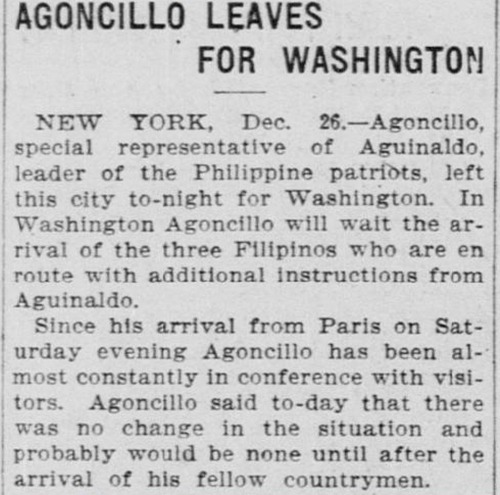
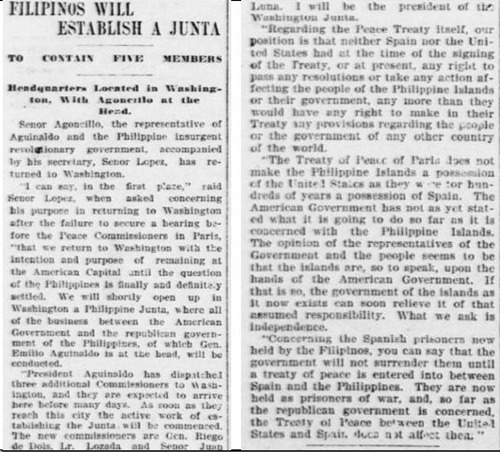
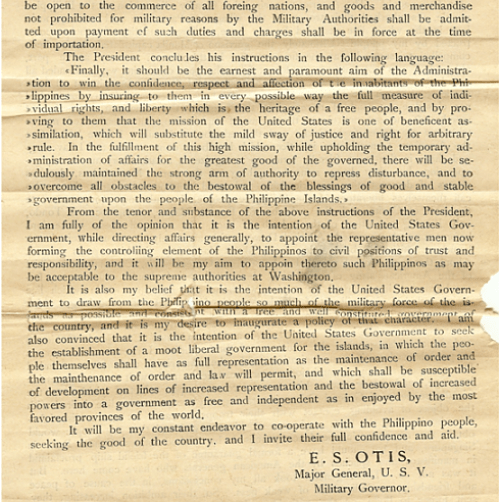
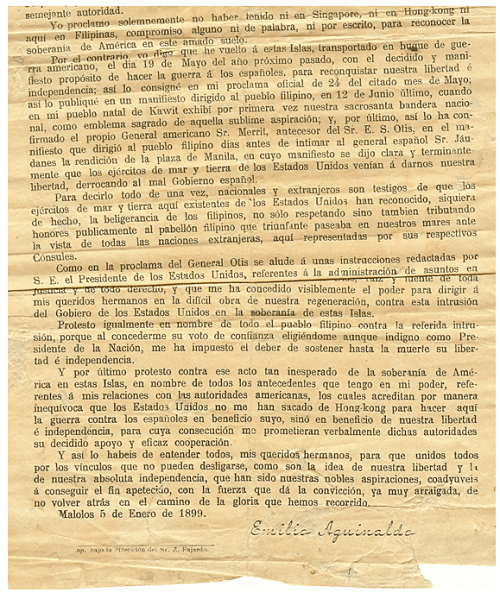
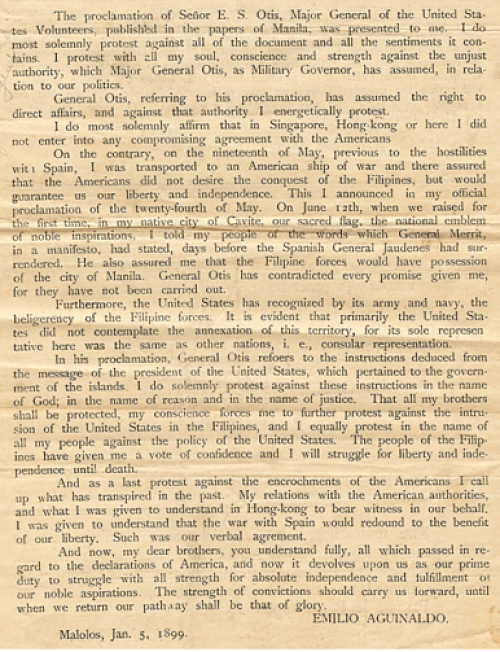
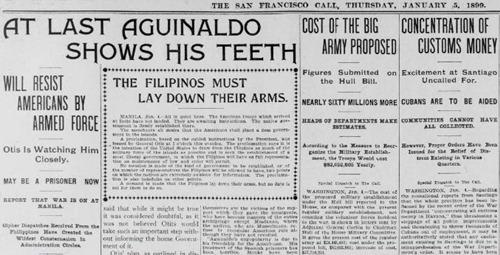
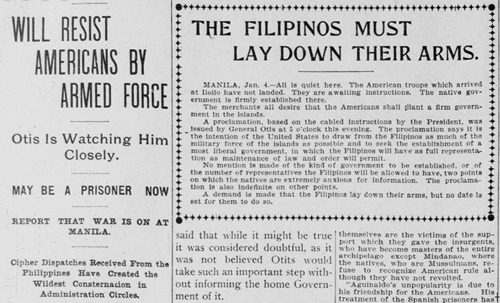
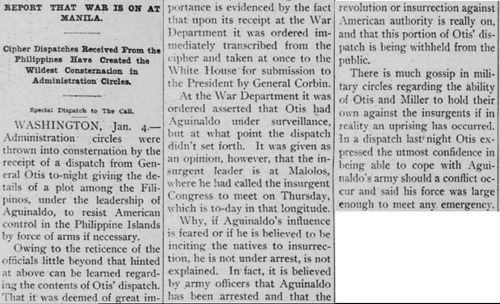
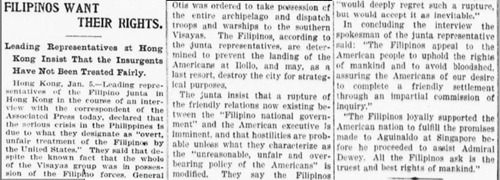
On Jan. 5, 1899, Aguinaldo issued a counter-proclamation to Mckinley’s “Benevolence”. He warned that his government was prepared to fight any American attempt to forcibly take over the country.
This sounded like a declaration of war to the American military although Aguinaldo had no wish to get into a war with the United States. He knew that war would only cause untold suffering to the Filipino people.
He was still hopeful that the situation could be saved by peaceful negotiations between him and the American military leaders in the Philippines.
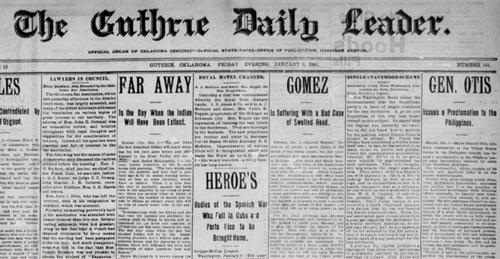
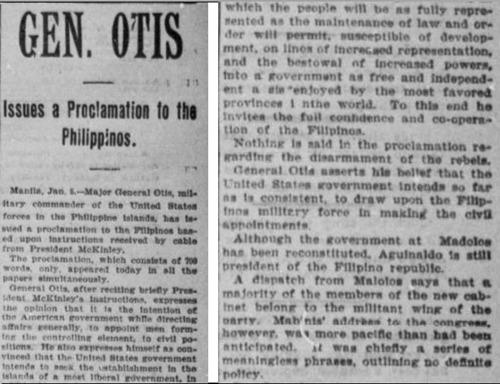
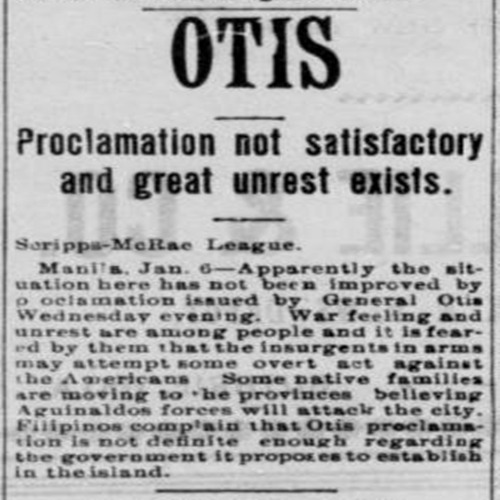
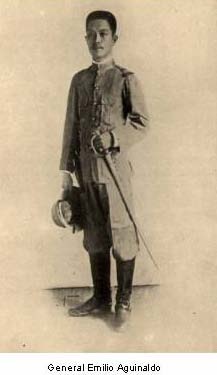
The Filipino panel was composed of Manuel Arguelles, Ambrosio Flores, and Florentino Torres; their American counterparts were Brig. Gen. Robert P. Hughes, provost-marshal-general of Manila and inspector-general ; Col. Enoch H. Crowder, judge-advocate-general; and Col. (later Gen.) James F. Smith, of the 1st California Volunteers. 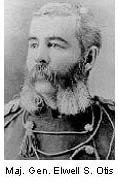
All this while, however, Otis was merely waiting for six regiments of the U.S. army to arrive to supplement his forces against the Filipino army. When they did come in late January, the seventh negotiation session was forthwith called off.
Otis thought he was now ready to carry out President Mckinley’s mandate to move on from Manila to occupy all of the archipelago.
